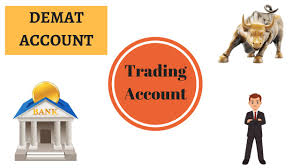Ready to help you


HL(Home Loan)
• A home loan is an amount of money that an individual borrows from a bank or money lending company at a certain rate of interest to be paid with the EMI every month. The property is taken as a security by the money lending company for the Home Loan.
• The property can either be commercial or personal in nature.
• When the borrower cannot pay the dues, the lender will possess all the legal rights to recover the outstanding loan amount by sale of the property in question.

LAP(Loan Against Property)
A loan against property is a secured loan that is sanctioned keeping an asset as mortgage with the lender. This asset can either be an owned land, a house, or any other commercial premises. The asset remains as collateral with the lender until the entire loan against property amount is repaid.
This type of secured loan can be an alternative for unsecured personal loans as it also has no end-use restriction. However, the loan amount can be much higher and the tenure is also longer in this case. Loan against property interest rates are considerably lower as compared to any unsecured loan.
You can use these loans for business purposes like purchasing machinery, buying raw materials, purchasing equipment, funding of working capital, debt consolidation, etc. This type of loan can also cater to personal requirements like wedding, higher education, home renovation, buying a new home, managing medical expenses, etc.

LRD(Lease Rental Discounting)
Lease Rental Discounting is a tool to acquire loans from banks using rental receipts as collateral. The bank will examine long-term cashflow and provide the loan based on the exact amount. This loan is then payable by the rents promised.
Factors Considered by the Bank When Providing Loan
To check your eligibility for Lease Rental Discounting, the bank will assess several factors which include:
Value of your property
Your capacity to repay
Other assets you own
Legality and technical aspects of your property
Liabilities that might occur

Business Loan
Businesses require an adequate amount of capital to fund startup expenses or pay for expansions. As such, companies take out business loans to gain the financial assistance they need. A business loan is debt that the company is obligated to repay according to the loan’s terms and conditions. According to the U.S. Small Business Administration, before approaching a lender for a loan, it is imperative for the business owners to understand how loans work and what the lender will want to see from the owner.

SME Loans
Basis of their investment in plant and machinery/equipment, the Government of India defines in economic term SME full form means Small and Medium Enterprises as.Basis of their investment in plant and machinery/equipment, the Government of India defines in economic term SME full form means Small and Medium Enterprises as.Loans for Small Medium Enterprises (SME) are business loans extended only to medium-sized enterprises.These loans are tailor-made to suit the needs and requirements of SMEs. Whether you’re looking to invest in factory infrastructure or maintain a healthy cash flow, an SME Loan from Bajaj Finserv would prove to be the smartest financing option for your business.

Credit Card
A credit card is a thin rectangular plastic card issued by financial institutions, which lets you borrow funds from a pre-approved limit to pay for your purchases. The limit is decided by the institution issuing the card based on your credit score and history. Generally, higher the score and better the history, higher is the limit. The key difference between a credit card and debit card is that when you swipe a debit card, the money gets deducted from your bank account; whereas, in case of a credit card, the money is taken from your pre-approved limit.

Personal Loan
Personal Loan is an unsecured credit provided by financial institutions based on criteria like employment history, repayment capacity, income level, profession and credit history. Personal Loan, which is also known as a consumer loan is a multi-purpose loan, which you can use to meet any of your immediate needs

Gold Loan
The gold loan, also referred as a loan against gold, is a secured loan that a borrower takes from a lender in lieu of gold ornaments such as gold jewelry. The loan amount sanctioned to you by lenders is generally a certain percentage of the gold’s value. You can repay it through monthly installment after which you get your gold articles back. Unlike other secured loans such as a home loan or car loan, there are no restrictions on the end use of gold loans. So whether you need to fund a wedding, family vacation or your child’s education, it is a great way to meet your sudden money requirement. Moreover, a lot of private and nationalised banks along with NBFCs offer gold loans at affordable interest rates.

Auto Loan
An auto loan is a loan taken out in order to purchase a motor vehicle. They are typically structured as installment loans and are secured by the value of car, truck, SUV, or motorcycle being purchased.

Travel Card
A travel card is a type of credit card that is specifically designed keeping in mind the needs of a traveller. A normal credit card gives you rewards in form of cashback or points which can be redeemed for gift cards, merchandise and discounts. A travel credit card offers travel-specific benefits. “Travel credit cards are available in both, co-branded and non-cobranded varieties. As co-branded travel credit cards usually offer higher reward points on spends made at partner travel brands, consider opting for a co-branded travel card only if you are loyal to a particular travel brand,”.

Dmat and Trading Account
A trading account is an investment account that holds securities, cash and other holdings like any brokerage account. With a trading account, an investor can buy and sell assets as frequently as they want, that too within the same trading session. Some of the key elements that differentiates a trading account from other investment accounts are – the level of trading activity, the purpose of the activity and the risk involved in the activity. Typically, holders of a trading account are involved in day trading and are often seen exercising long-term buy and hold strategies.
For this reason, you need a special account through which you can conduct transactions. This is called the trading account. Without one, you cannot trade in the stock markets. You register for an online trading account with a stock broker or a firm. Each account comes with a unique trading ID, which is used for conducting transactions.Also, each broker offers different trading account features. Read more about features of trading by Kotak Securities.

Fixed Deposit
A fixed deposit refers to an investment scheme that banks and non-banking financing companies provide. FDs offer greater returns on the principal invested when compared to the returns generated from a regular savings account.
Fixed deposits have a fixed tenure, hence the name. Depending on a consumer’s investment portfolio, the FD investment period can either be short-term or long-term. The interest rates on fixed deposits vary from one company or bank to another.
Fixed deposit investors need to remember, however, that they cannot withdraw money before maturity without financial repercussions. In emergencies, early withdrawal is possible after the payment of penalties.

Mutual Fund
A mutual fund is a type of financial vehicle made up of a pool of money collected from many investors to invest in securities like stocks, bonds, money market instruments, and other assets. Mutual funds are operated by professional money managers, who allocate the fund’s assets and attempt to produce capital gains or income for the fund’s investors. A mutual fund’s portfolio is structured and maintained to match the investment objectives stated in its prospectus.
Mutual funds give small or individual investors access to professionally managed portfolios of equities, bonds, and other securities. Each shareholder, therefore, participates proportionally in the gains or losses of the fund. Mutual funds invest in a vast number of securities, and performance is usually tracked as the change in the total market cap of the fund—derived by the aggregating performance of the underlying investments.
